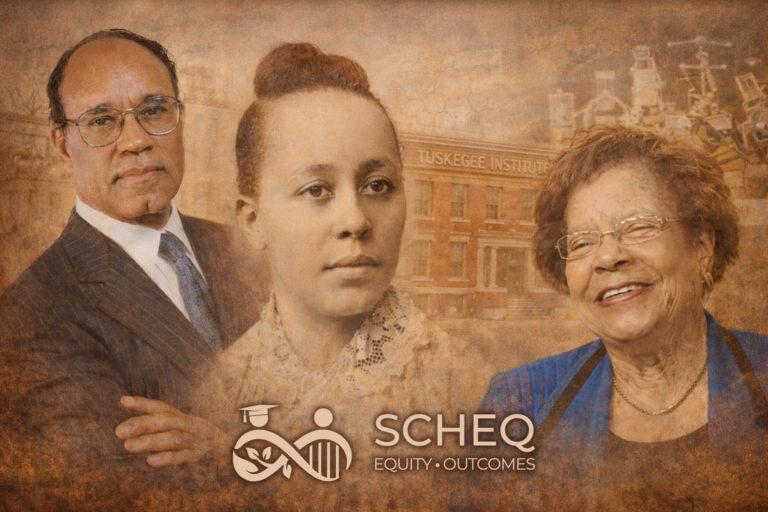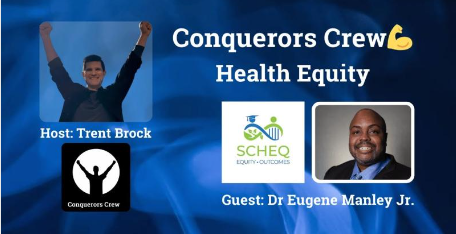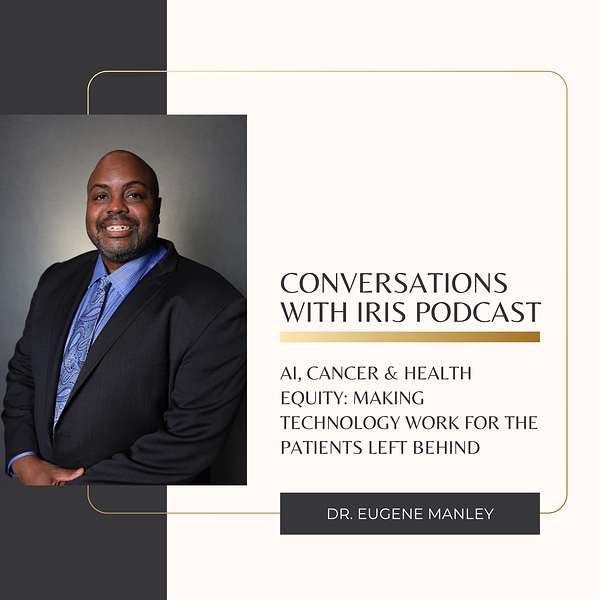I attended the inaugural Lung Cancer Equity Summit: Informing, Educating, and Empowering presented by the Satcher Health Leadership Institute (SHLI) at Morehouse School of Medicine (MSM), hosted by Clark Atlanta University (CAU) in Atlanta, GA on Nov. 28, 2023. November is also Lung Cancer Awareness Month. This program was important because it is in alignment the SCHEQ (STEMM & Cancer Health Equity) Foundation’s mission of increasing awareness, survivorship, and advocacy for underserved groups facing cancer. This event came to fruition from some initial discussions that arose out of the 2022 AACR Disparities Meeting. About 7 other individuals and myself started brainstorming about the possibility of holding an event that would highlight the issues faced by Black and Latino/a/x communities navigating the lung cancer care continuum. We really wanted it to be an encompassing event that spanned policy, research, community engagement, disparities, education, and bringing diverse stakeholders together. We sat on it for a while, then Genentech reached out to ask the group to submit our proposal. Thankfully, they decided to sponsor it, and SHLI took over organizing and implementing the program. I will highlight some takeaways from summit.
Clinical Aspects and Translation Perspective in Lung Cancer Equity
This session panelists discussed some of the disparities in lung cancer screening, biomarker testing, and clinical trials. Panelists discussed how many therapies have been developed in the last 10-15 years, but that not everyone is benefiting from them. There was also a study that showed that if patients were offered similar access to screening and biomarker testing, disparities could be eliminated. We also heard about the impacts of stress, diet, and obesity on lung cancer.
Community-based Approaches and Advancing Health Equity
Due to the disparities that are seen in Black and poor communities, one study set up surveys to understand awareness and literacy, and then implemented an educational and outreach program. Those that participated in the program were much more able to understand cancer, advocate for their care, and were empowered to take control of their treatment plan. Another presentation discussed using cell line models to look at immunotherapies. However, the most challenging issue is that there are hardly any lung cancer cell lines or lung epithelial cell lines from Black patients. This makes it difficult to translate or predict how diverse patients might respond.
Advocacy, Policy, and the Community.
A patient described her experience navigating lung cancer. She also faced personal issues at the same time as her diagnosis. While she is well-educated and knows the research space, she still did not have all the information she wanted or needed when starting on her journey. She is thriving today. A LUNGevity educator presented information about their patient resources, helplines, events, research, health equity, and downloadable materials. We also had a presentation from a caregiver and advocate who lost his wife, and is striving to increase awareness about lung cancer in Black and underrepresented communities and talk about stigma. We also had a discussion about how menthol was targeted to Black communities, and what the new proposed FDA ban on menthol will and will not do to reduce lung cancer rates.
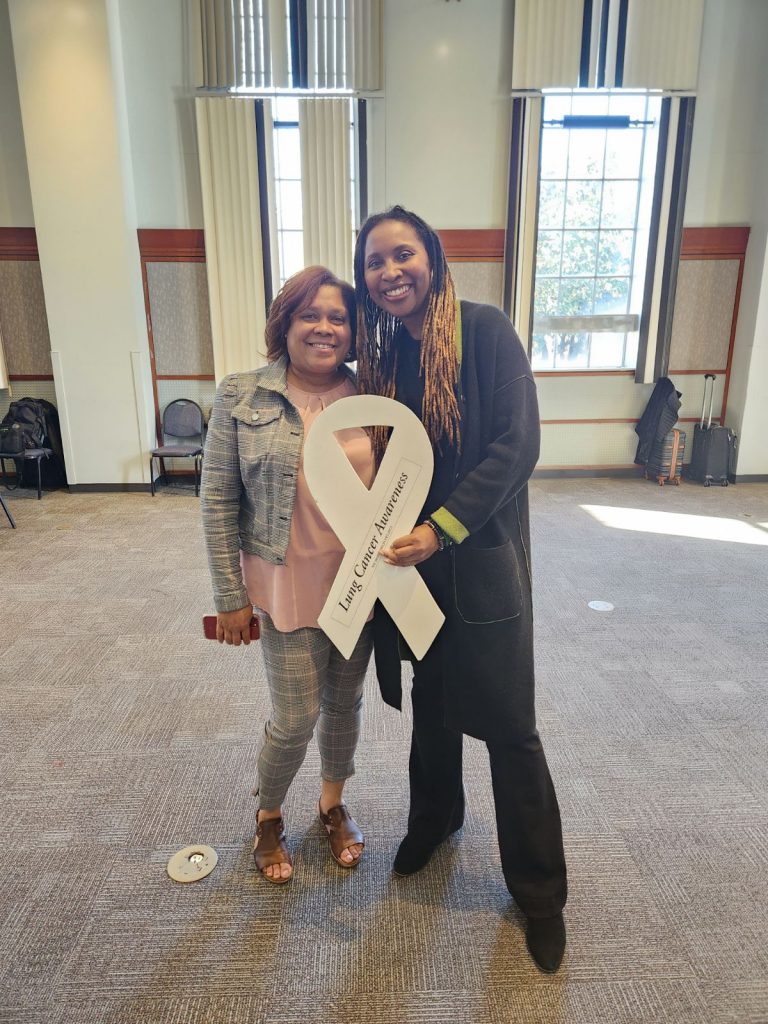
Training the Next Generation in Lung Cancer
Panelists on this session covered training programs, mentorship, and social media. We learned about the various programs for high school, undergraduate, graduate, and medical students at MSM. I, representing SCHEQ, presented on some philosophies and strategies that should be considered when creating mentoring programs that should have a positive impact on the careers of diverse scholars in lung cancer and biology. I also discussed the barriers that historically excluded and first-generational groups face, the flaws in mentoring programs, and the life and personals skills that often are not taught. Lastly, a PhD candidate spoke about how attending meetings like AACR Disparities and the Annual Biomedical Research Conference for Minoritized Scientists (ABRCMS) impacted his career, and how networking has led to several opportunities. He stressed the importance of using social media to connect to people, seeing others that look like you that are doing research, and building your brand.

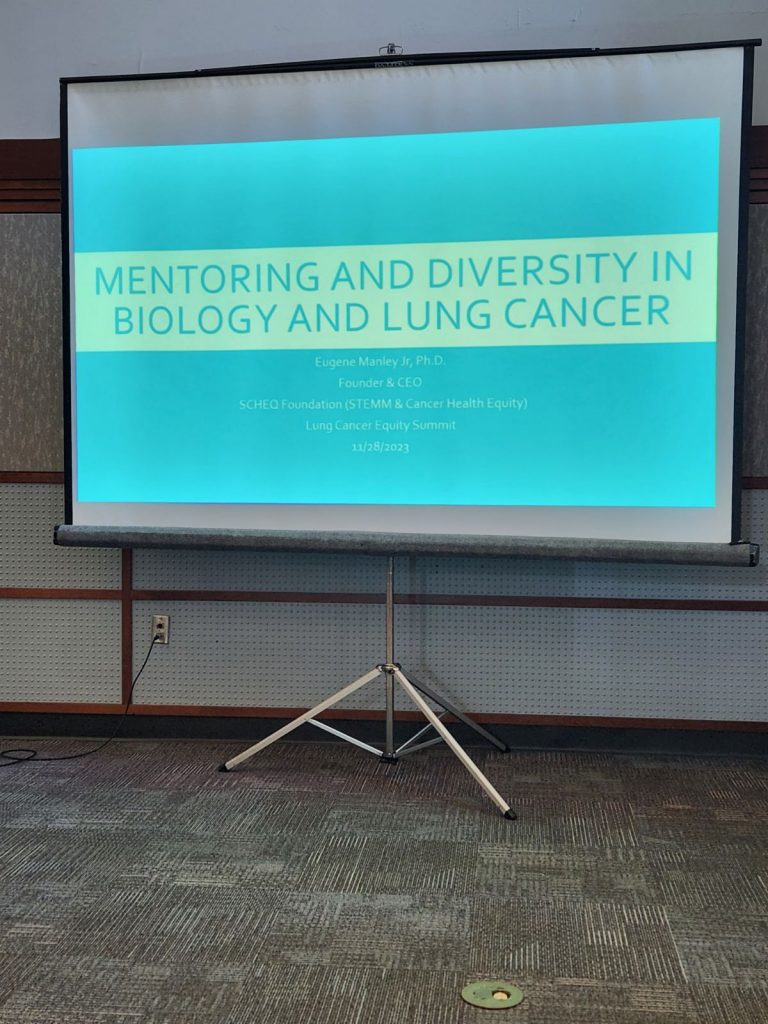
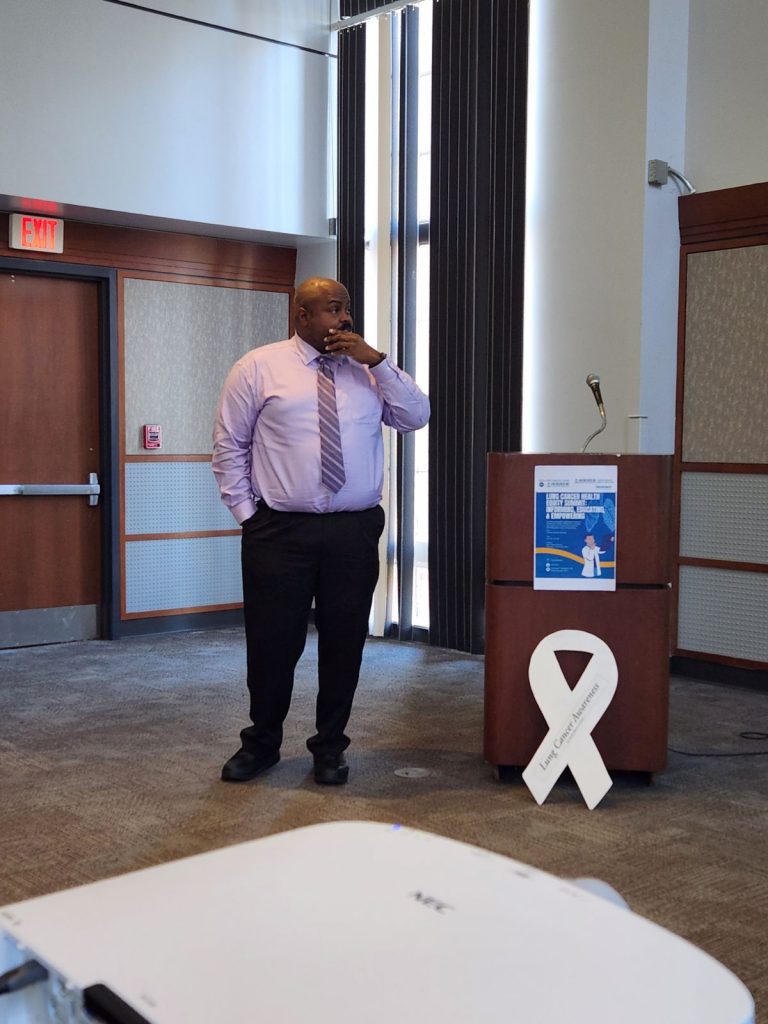
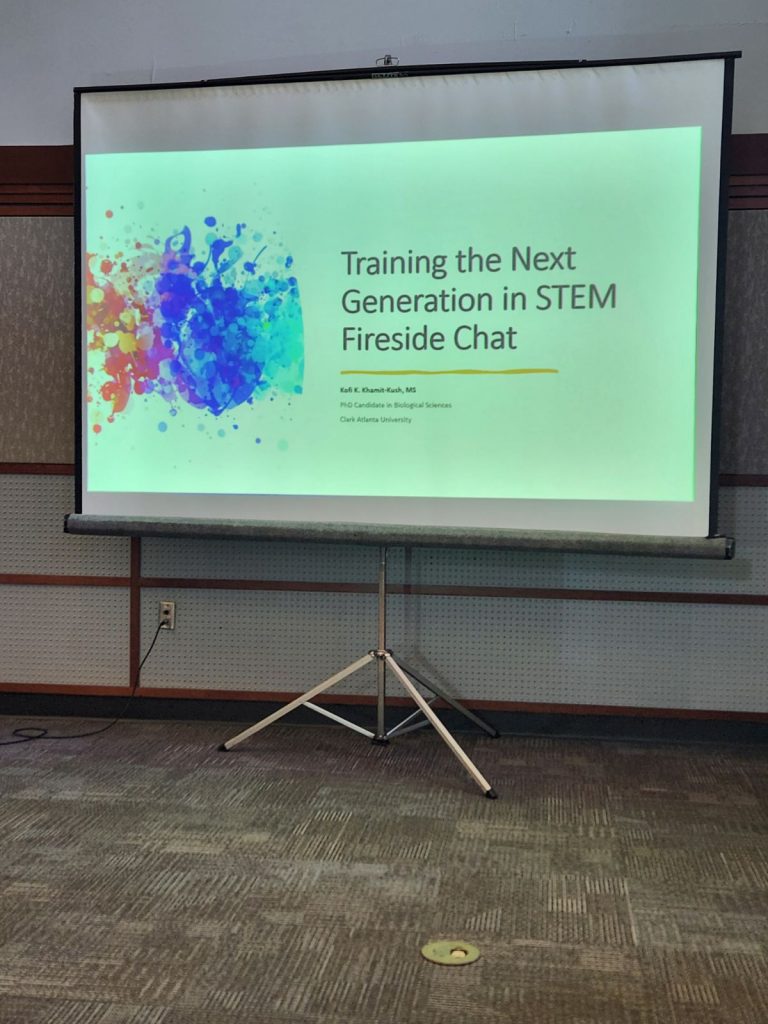
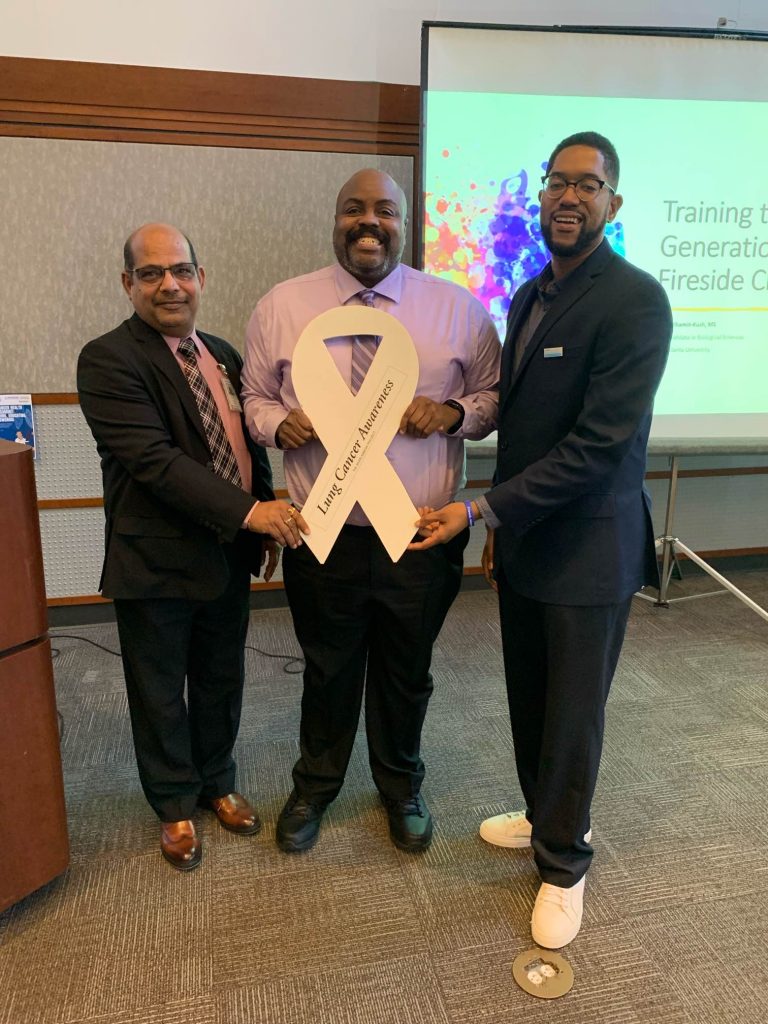
Opening and Closing
We had opening remarks from SHLI, MSM, CAU, and Genentech that laid the foundation for the event and why it is so important. Dr. Standifer wrapped up the meeting summarizing all of the sessions, and what we need to do going forward to make long lasting changes for underserved populations navigating lung cancer. I am looking forward to next year’s program which will be more extensive.
Eugene Manley, Jr. PhD. Is the Founder and CEO of the SCHEQ Foundation (STEMM & Cancer Health Equity) in New York City. Dr. Manley is a Mechanical Engineer, Biomedical Engineer, and Molecular and Cell Biologist that is dedicated to mentoring, health equity, workforce diversity, training programs, partnerships, and advocating for underserved and marginalized populations.
Interested in learning more about SCHEQ? Please go to our website. If you would like to donate to help us achieve our mission, please click here. If you would like to use stock, wire, or donor advised fund, email here (Info@scheq.org). We are a fiscally sponsored organization by the Goodnation Foundation, with EIN number 81-4768488.


